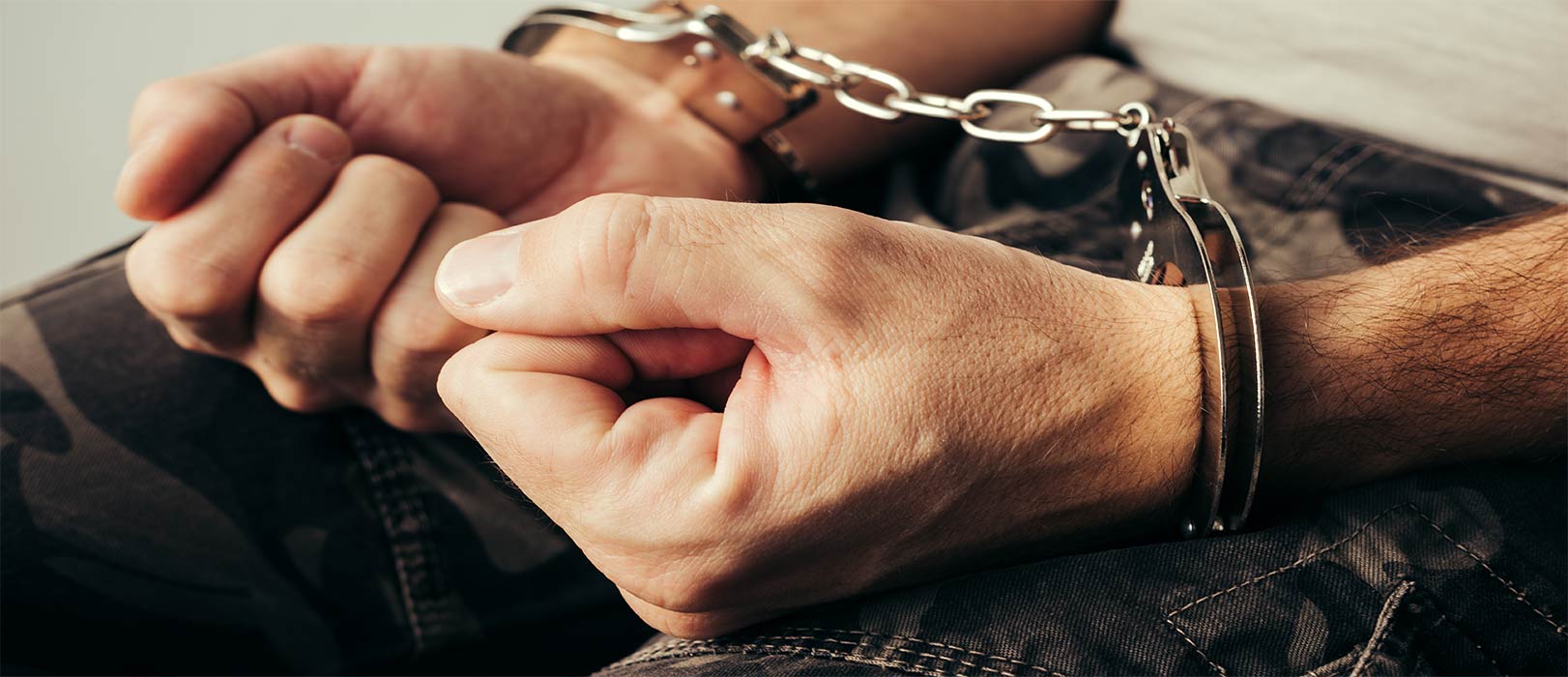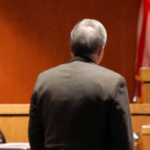The American justice system is not perfect, and mistakes are made.
Judges and juries occasionally convict innocent people, or a defendant’s rights may be violated. The devastating injustice of a wrongful conviction can sometimes be reversed.

How to Overturn a Wrongful or Unjust Conviction
A Motion for Relief from Judgment is often called a 6.500 or “6500” Motion. A 6.500 Motion is for defendants who have used all their state appeals, missed filing deadlines, and cannot appeal in the federal court system. If a Motion for Relief from Judgment is granted, the conviction is removed from a person’s criminal history, as if it never happened.
The most common way to argue that there is cause to reverse a conviction is a claim of ineffective assistance of counsel. Some factors a court will consider when it hears this claim are:
- Were the omitted issues “significant and obvious?”
- Was there arguably contrary authority on the omitted issues?
- Were the omitted issues stronger than those presented?
- Were the omitted issues objected to at trial?
- Were the trial court’s rulings subject to deference on appeal?
- Did the appellate attorney testify in a collateral proceeding about his appeal strategy, and if so, were the justifications reasonable?
- What was the appellate counsel’s level of experience and expertise?
- Did the petitioner and appellate counsel meet and go over possible issues?
- Is there evidence that Counsel reviewed all the facts?
- Were the omitted issues dealt with in other assignments of error?
If the claim is actual innocence or a jurisdictional defense, the “cause requirement” is waived. To satisfy the “actual innocence” standard, the defendant must show that it is more likely than not that no reasonable juror would have found the defendant guilty if the newly discovered evidence had been presented at the trial. A jurisdictional defect is one where the state had no authority to bring the charge in the first place.
There are cases where the requirements for a Motion for Relief from Judgment (6500 Motion) do not “technically” apply. All hope is not lost in these cases. If a creative, savvy, highly persuasive lawyer can demonstrate to a prosecutor that justice would best be served by setting aside a conviction, the prosecutor may agree or stipulate to have the prior conviction set aside or reduced. Most judges will find it difficult to deny a motion if a respected defense lawyer and a prosecutor stipulate or agree to have the conviction thrown out of court.
What are the most common reasons a Motion for Relief from Judgement is granted?
The most common reasons these motions are granted on Michigan felony convictions are “newly discovered evidence,” “ineffective assistance of counsel,” and a “retroactive change in the law.” Generally, “newly discovered evidence” was not known at the time of the trial or plea and could not reasonably have been discovered with due diligence.
A trial court cannot grant relief to a defendant if the Motion for Relief from Judgment alleges grounds for relief that could have been previously raised, unless the defendant demonstrates both good cause for failing to raise the grounds earlier and actual prejudice.

What other options are there for a Motion for Relief from Judgement?
Other legitimate reasons to file a Motion to Set Aside a Conviction or a Motion for Relief from Judgment include:
- government suppression of evidence in violation of Due Process,
- interference by prison officials,
- mental incompetence of the defendant,
- the principles of law being advanced are so novel that they could not have been raised previously, or
- the ruling in the defendant’s own case created a new issue.
To win a Motion for Relief from Judgement and set aside a conviction, the defendant must show “prejudice.” Prejudice means that the error was so great that the defendant would have had a reasonably likely chance of acquittal if not for that error.
If the conviction was by a plea, the defendant must show that allowing the conviction to stand would be manifestly unjust.
Can I present new evidence in a 6500 Motion?
Yes, you can present new evidence; however, Judges are reluctant to grant new trials based on newly discovered evidence. The court can even conduct an evidentiary hearing to permit the parties to review proffered new evidence showing innocence or inequity in the conviction. If an issue is raised or the evidence could have been discovered or argued before, your lawyer will be required to present a very good reason for why this was not done.
The defendant bears the burden of establishing the following:
- the evidence itself, not merely its materiality, was newly discovered;
- the newly discovered evidence was not cumulative;
- the party could not, using reasonable diligence, have discovered and produced the evidence at trial; and
- the new evidence makes a different result probable on retrial.
Can I get court-appointed counsel?
To get a court to consider a Motion for Relief from Judgment (6500 motion), the defendant must explain why the issues were not raised previously and why there is “good cause” for the judge to hear the motion. It may be possible to get court-appointed counsel, although there is no right to a lawyer. If a request for appointed counsel is denied, you must file the motion on your own or retain private counsel, like LEWIS & DICKSTEIN, P.L.L.C. Our team can assist in drafting and perfecting your motion to give you the best odds of success. On the other hand, the defendant must be represented by either a retained lawyer or a court-appointed attorney if there is a hearing. If an indigent defendant is granted a court-appointed lawyer, they get the “luck of the draw” as far as what lawyer is appointed because there is no right to a court-appointed lawyer of your choosing.
If you can afford a privately retained lawyer, this is generally in your best interest and gives you the maximum chance of success. Typically, you only get one opportunity to present a Motion for Relief from Judgment, and there is no room for mistakes or evidence inadvertently not included in the pleadings. Retained lawyers who frequently handle these motions will know precisely what to prepare and include. Furthermore, a retained lawyer will take ample time with you out of court so that they can learn everything about your life that can be helpful to the motion and take the time to get evidence of any such things.
What if I lose a Motion for Relief from Judgment? Can I try again later?
Probably not. The law provides that you get one and only one motion for relief from judgment. There are only two exceptions to this rule: newly discovered evidence and retroactive change in the law. If you’re considering filing a Motion for Relief from Judgment under the 6500 rule, you should do everything possible to get it done right the first time. This includes hiring the best, most experienced defense lawyer you can find.

Frequently Asked Questions Regarding 6.500 Motions
What is the standard of review on appeal if I lose a 6.500 Motion for Relief from Judgment?
The Michigan Court of Appeals reviews a trial court’s grant or denial of relief from judgment for an abuse of discretion.
What is a Motion for Relief From Judgment?
Because it originates from Subchapter 6.500 of the Michigan Court Rules, a motion for relief from judgment is also referred to as a “6500 Motion” occasionally. You must exhaust all available avenues of appeal before submitting a Petition for Relief From Judgment. If this is the case, your appeal was probably unsuccessful, which can be demoralizing. Fortunately, if you are arguing on specific grounds, a Petition for Relief From Judgment may still assist you in clearing your name.
When is a Motion for Relief From Judgment Appropriate?
Not every criminal defense case qualifies for a Request for Relief from Judgment. One of two conditions must be satisfied to file one:
- There is new evidence in the case: On occasion, a trial or even the appeals procedure will take place before all the evidence is provided. You can submit a Request for Relief from Judgment if new evidence is discovered that would point to your innocence.
- The law has changed retroactively: You can submit a 6.500 Motion for Relief from Judgment if the law has changed and different standards apply to your case now than when you were convicted.
How to File a Motion for Relief From Judgment
The process of filing a Motion for Relief From Judgment is complicated and varies depending on the court and judge. It would be best to always work with an experienced criminal defense lawyer because you will likely only get one shot at relief. The simple steps your lawyer will take include the following:
- Collect witness statements, information for potential witnesses, transcripts, evidence, and all court pleadings.
- Conduct an investigation (including obtaining new scientific, forensic, medical, etc., evidence)
- Draft and file the 6.500 Motion and Brief in Support.
- Attempt to obtain a court hearing if possible.
Can I relitigate an issue that I believe was decided incorrectly?
Generally, you cannot re-argue issues you believe were incorrectly decided at trial or on appeal. If you have a good post-judgment issue in your case, under MCR 6.508(D)(3)(a), you need to show “good cause for failure to raise such grounds on appeal or in a prior motion.” In most cases, this boils down to establishing that your appeal or trial attorney missed an issue in your case that should have been raised in the first appeal. This would establish what’s called ineffective assistance of counsel. Alternatively, you could show that there is newly discovered evidence that could not have reasonably been found or a change in the law that is retroactive.
What is “actual prejudice”?
Actual prejudice means: if not for an alleged error at trial, the defendant would have had a reasonably likely chance of acquittal. For convictions following a plea, the error rendered the plea involuntary to the degree that it would be manifestly unjust to allow the conviction to stand. An irregularity that is so offensive to the maintenance of a sound judicial process that the conviction should not be allowed to stand. If the 6.500 Motion challenges the sentence, the defendant must demonstrate that the sentence was invalid.
How to appeal a denied 6.500 Motion for Relief from Judgment?
If the circuit court denies a Motion for Relief from Judgment, the defendant can file an Application for Leave to Appeal with the Michigan Court of Appeals within six (6) months. With such an application, the Court of Appeals decides whether to hear the appeal. The appellate court is not required to hear the appeal or to issue a decision. If the application is granted, the judges will listen to the appeal. If the appeal is unsuccessful, the defendant can appeal to the Michigan Supreme Court.
Is there any way to file a second 6.500 Motion?
A second or successive 6.500 motion can be filed according to MCR 6.502(G)(2) if it is based on a retroactive change in the law that occurred after the previous Motion for Relief from Judgment or based on a genuine claim of newly discovered evidence that was not discovered before the previous motion. Judges have the discretion to waive the “one-motion limitation” if they believe there is a substantial probability that the defendant is innocent.
Does the newly discovered evidence in a successive motion have to be enough by itself to justify a new trial?
No! For a successive 6.500 Motion, the newly discovered evidence is considered along with all the defendant’s evidence of their innocence.

Attorneys Experienced with Motions to Set Aside Convictions Pursuant to MCR 6.500
The Defense Team with LEWIS & DICKSTEIN, P.L.L.C. has experience filing motions for post-judgment motions, including Motions for Relief from Judgment, and we are routinely successful. Although a 6.500 motion is almost always an uphill battle and challenging to win, we can provide a client with the best possible chances of success. Call us for a free consultation today, and we will find a way to help you!
Call us today at (248) 263-6800 for a free consultation or complete an online Request for Assistance Form. We will contact you promptly and find a way to help you.











